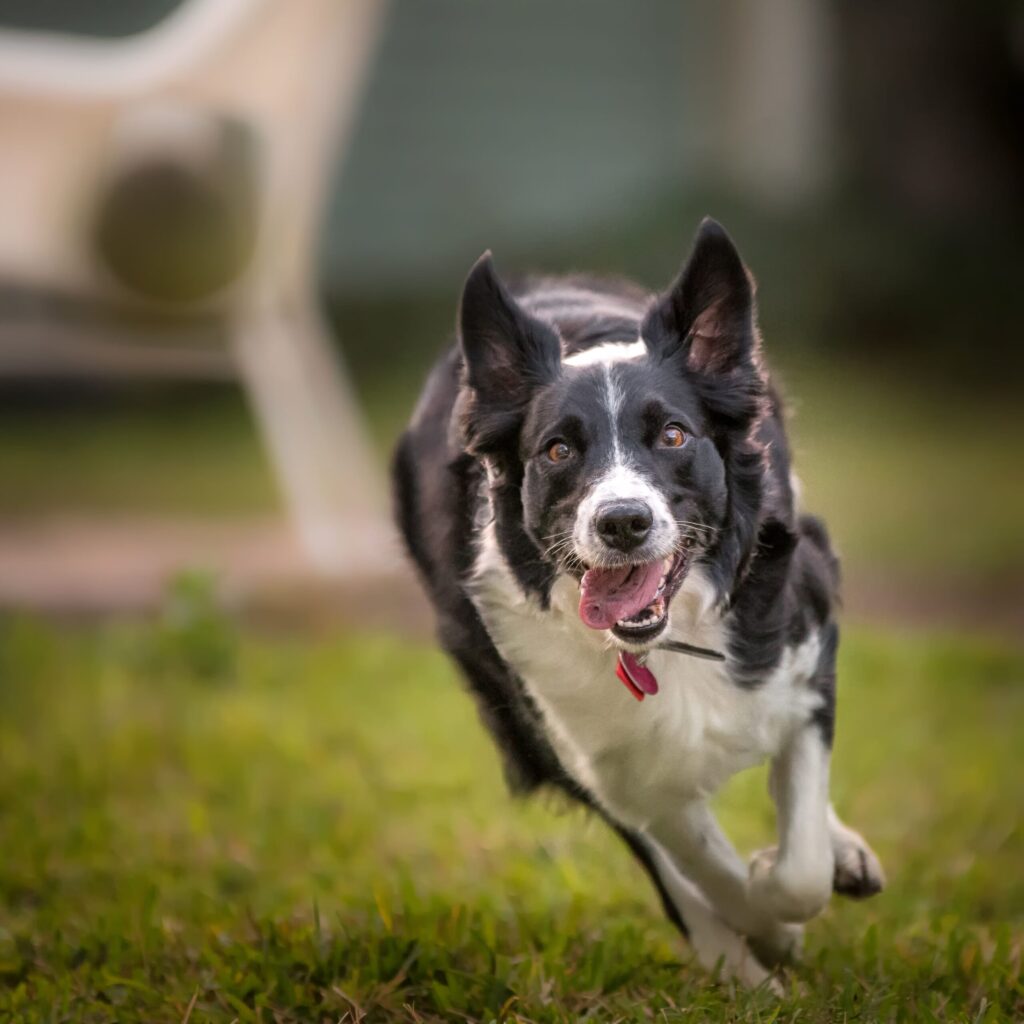[ad_1]
“My dog is so ADHD …” is a phrase commonly used to describe our overly energetic, often impulsive canine friends. It’s a convenient comparison of activity levels with the familiar human diagnosis of ADHD. Yet, canine hyperactive disorder (HD) remains a rare clinical diagnosis, says dog behaviorist Dr. Sally J. Foote.
Symptoms of canine HD (dog adhd)
Not sure if your dog has canine hyperactive disorder? Look for these symptoms:
- Inability to stop moving despite hours of exercise
- Difficulty sleeping for prolonged periods of time
- Lack of focus during constant movement
- Very difficult to train
- Does not respond to anxiety-reducing drugs
- Responds well to stimulant drugs to decrease activity
“As far as a diagnostic term, it (ADHD) does not exist in vet medicine,” Dr. Foote says.
Dogs can be highly active during phases of their life, especially younger dogs starting at five to six months of age.
Many of these young dogs are progressing through a normal developmental stage and often lack an outlet for exercise, early socialization and impulse control, she says. Puppies need socialization classes at about eight weeks of age — an important start for manners.
With the adult dog who’s bolting and pulling on the leash, jumping and overall not paying attention to you, it’s commonly due to training and manners that did not begin when young, Dr. Foote says.
Help for hyperactive dogs
To decrease dog HD-like behaviors, she suggests:
- Walk or play outdoors for one minute per pound of your dog’s body weight
- Food puzzles (enrichment)
- Walks and feeding time kept on a daily schedule
- Structure and training
If high activity levels don’t decrease by 20 to 25 percent after putting in the work to reduce them, she recommends finding a vet behaviorist. Exercise, consistent routines involving polite manners blended with enrichment help calm “Rowdy Rovers,” she says.
Some breeds are genetically wired with energy, like Border Collies, Aussies and Golden Retrievers. They are typically bred body and mind for active jobs. In a home environment, these breeds need a substitution for their inherent need for activity, she says.
“Otherwise, he’s going to be pent up, and he’s gonna get frustrated, and he’s gonna start to express it in over-barking, jumping up and these other behaviors. It’s really as simple as that,” says Dr. Foote.
Dogs cannot unlearn what they’ve learned before, she adds. They can learn a new way to function.
“That’s why their routines and rituals have to be maintained. Because if you get slack, they’re gonna fall back.” Structure gives them security and predictability about life, what they’re supposed to do when, why and how.
For constructive ways to work with a high energy dog including a detailed activity checklist for the rare condition of HD, read professional trainer Pat Miller’s “Think Your Dog Has ADHD?” found in Dogster’s sister publication, The Whole Dog Journal.
Canine hyperactive disorder is rare. Easily distracted, high-octane dogs are not. Quality exercise and training helps answer “Can my dog have ADHD?” and helps him find the sweet spot alongside you.
[ad_2]

